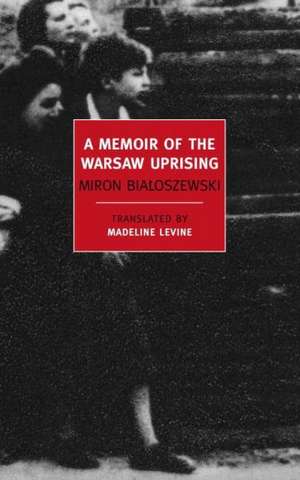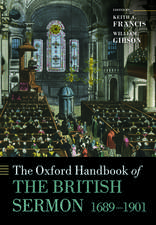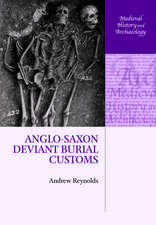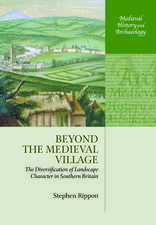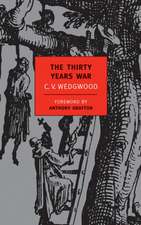A Memoir of the Warsaw Uprising: Selected Stories: New York Review Books Classics
Autor Miron Bialoszewski Madeline Levineen Limba Engleză Paperback – 30 iul 2014
Białoszewski’s blow-by-blow account of the Uprising brings it alive in all its desperate urgency. Here we are in the shoes of a young man slipping back and forth across German lines, dodging sniper bullets, collapsing with exhaustion, rescuing the wounded, burying the dead. An indispensable and unforgettable act of witness, A Memoir of the Warsaw Uprising is also a major work of literature. Białoszewski writes in short, stabbing, splintered, breathless sentences attuned to “the glaring identity of ‘now’.” His book displays a wild whiteknuckled poetry that resists the terrible destruction it records.
Din seria New York Review Books Classics
-
 Preț: 88.86 lei
Preț: 88.86 lei -
 Preț: 99.24 lei
Preț: 99.24 lei - 16%
 Preț: 79.25 lei
Preț: 79.25 lei -
 Preț: 77.73 lei
Preț: 77.73 lei -
 Preț: 124.55 lei
Preț: 124.55 lei -
 Preț: 98.73 lei
Preț: 98.73 lei -
 Preț: 83.30 lei
Preț: 83.30 lei -
 Preț: 182.63 lei
Preț: 182.63 lei -
 Preț: 102.47 lei
Preț: 102.47 lei -
 Preț: 76.46 lei
Preț: 76.46 lei -
 Preț: 174.64 lei
Preț: 174.64 lei -
 Preț: 110.73 lei
Preț: 110.73 lei -
 Preț: 119.57 lei
Preț: 119.57 lei -
 Preț: 94.01 lei
Preț: 94.01 lei -
 Preț: 119.36 lei
Preț: 119.36 lei -
 Preț: 101.24 lei
Preț: 101.24 lei -
 Preț: 85.97 lei
Preț: 85.97 lei -
 Preț: 142.67 lei
Preț: 142.67 lei -
 Preț: 102.25 lei
Preț: 102.25 lei -
 Preț: 103.29 lei
Preț: 103.29 lei -
 Preț: 113.30 lei
Preț: 113.30 lei -
 Preț: 100.59 lei
Preț: 100.59 lei -
 Preț: 126.41 lei
Preț: 126.41 lei -
 Preț: 107.40 lei
Preț: 107.40 lei -
 Preț: 174.03 lei
Preț: 174.03 lei -
 Preț: 107.44 lei
Preț: 107.44 lei -
 Preț: 89.27 lei
Preț: 89.27 lei -
 Preț: 85.34 lei
Preț: 85.34 lei -
 Preț: 90.09 lei
Preț: 90.09 lei -
 Preț: 96.42 lei
Preț: 96.42 lei -
 Preț: 99.60 lei
Preț: 99.60 lei -
 Preț: 85.16 lei
Preț: 85.16 lei -
 Preț: 127.42 lei
Preț: 127.42 lei -
 Preț: 87.20 lei
Preț: 87.20 lei -
 Preț: 136.91 lei
Preț: 136.91 lei -
 Preț: 105.17 lei
Preț: 105.17 lei -
 Preț: 161.86 lei
Preț: 161.86 lei -
 Preț: 90.72 lei
Preț: 90.72 lei -
 Preț: 88.86 lei
Preț: 88.86 lei -
 Preț: 94.83 lei
Preț: 94.83 lei -
 Preț: 120.63 lei
Preț: 120.63 lei -
 Preț: 133.18 lei
Preț: 133.18 lei -
 Preț: 95.45 lei
Preț: 95.45 lei -
 Preț: 97.50 lei
Preț: 97.50 lei -
 Preț: 81.66 lei
Preț: 81.66 lei -
 Preț: 111.96 lei
Preț: 111.96 lei -
 Preț: 100.18 lei
Preț: 100.18 lei -
 Preț: 75.23 lei
Preț: 75.23 lei -
 Preț: 91.13 lei
Preț: 91.13 lei -
 Preț: 94.67 lei
Preț: 94.67 lei
Preț: 106.83 lei
Nou
Puncte Express: 160
Preț estimativ în valută:
20.44€ • 21.40$ • 16.91£
20.44€ • 21.40$ • 16.91£
Carte disponibilă
Livrare economică 15-29 martie
Livrare express 01-07 martie pentru 21.19 lei
Preluare comenzi: 021 569.72.76
Specificații
ISBN-13: 9781590176658
ISBN-10: 1590176650
Pagini: 288
Dimensiuni: 127 x 203 x 15 mm
Greutate: 0.27 kg
Editura: NEW YORK REVIEW OF BOOKS
Seria New York Review Books Classics
ISBN-10: 1590176650
Pagini: 288
Dimensiuni: 127 x 203 x 15 mm
Greutate: 0.27 kg
Editura: NEW YORK REVIEW OF BOOKS
Seria New York Review Books Classics
Notă biografică
Miron Białoszewski (1922ߝ1983) was one of Poland’s greatest postwar poets, a playwright, and an actor. Deported to a German work camp following the Warsaw Uprising, he escaped a month later and eventually returned to the devastated city after the war. His first volume of poetry, Obroty rzeczy (Revolution of Things), appeared in 1956 in Warsaw and created a sensation. This was followed by several other collections of poetry, A Memoir of the Warsaw Uprising and other narrative prose, and travelogues. Idiosyncratic and notoriously difficult to translate, he became a minor cult figure in the United States with the appearance of The Revolution of Things: Selected Poems of Miron Białoszewski (1974).
Madeline Levine is a professor of Slavic languages and literatures at the University of North Carolina, Chapel Hill.
Madeline Levine is a professor of Slavic languages and literatures at the University of North Carolina, Chapel Hill.
Recenzii
“A master of grammatical games, puns, and colloquial speech patterns, this dark-minded, philosophically inclined scrutinizer of the humblest objects of daily life is enjoying more popularity and critical attention a quarter century after his death than during his lifetime. Outside of Poland, he remains best known for his Memoir of the Warsaw Uprising.” —The Iowa Review
“Białoszewski very quickly emerged, surfaced for me as the most exciting and most intriguing Polish writer of what now would be the second half of the century.” —Chicago Review
“Białoszewski demonstrates that each loss also offers a new way of seeing and something new to see, even if what comes into view is only a ‘grey naked hole.’ He manages to generate a new form from absence and emptiness as the ‘greynakedhole’ takes on a life of its own. Seen this way, the world’s inescapable losses generate not only pain, but also creative possibility and even perhaps ‘inexhaustible joy.’ ” —Clare Cavanaugh, Partisan Review
“This most ‘private’ author of postwar Polish literature disregards discourses of history so deeply embedded in the Polish literary tradition; rather he focuses on the mundane aspects of the everyday life, usually from an autobiographical perspective and using an overtly colloquial language. Although Białoszewski’s works have stirred many discussions, most of these have focused on his treatment of genres and language.” —Joanna Nizynska, professor of Polish, Harvard University
“Poems of Miron Białoszewski is the book I hope to one day hold in my hands. A great post-war Polish poet, Białoszewski wrote work radically different from that of his contemporaries—Miłosz, Świr, Kamieńska, Herbert, and Szymborska—but his poetry was just as powerful and important to the development of the contemporary European lyric.... When I mentioned [him] to Tomaž Šalamun in a recent conversation, Tomaž’s face lit up: ‘Białoszewski, when he is translated and available in English, will cause an explosion in American poetry!’ One hopes so.” —Ilya Kaminsky, poetry editor, Words Without Borders
“Białoszewski very quickly emerged, surfaced for me as the most exciting and most intriguing Polish writer of what now would be the second half of the century.” —Chicago Review
“Białoszewski demonstrates that each loss also offers a new way of seeing and something new to see, even if what comes into view is only a ‘grey naked hole.’ He manages to generate a new form from absence and emptiness as the ‘greynakedhole’ takes on a life of its own. Seen this way, the world’s inescapable losses generate not only pain, but also creative possibility and even perhaps ‘inexhaustible joy.’ ” —Clare Cavanaugh, Partisan Review
“This most ‘private’ author of postwar Polish literature disregards discourses of history so deeply embedded in the Polish literary tradition; rather he focuses on the mundane aspects of the everyday life, usually from an autobiographical perspective and using an overtly colloquial language. Although Białoszewski’s works have stirred many discussions, most of these have focused on his treatment of genres and language.” —Joanna Nizynska, professor of Polish, Harvard University
“Poems of Miron Białoszewski is the book I hope to one day hold in my hands. A great post-war Polish poet, Białoszewski wrote work radically different from that of his contemporaries—Miłosz, Świr, Kamieńska, Herbert, and Szymborska—but his poetry was just as powerful and important to the development of the contemporary European lyric.... When I mentioned [him] to Tomaž Šalamun in a recent conversation, Tomaž’s face lit up: ‘Białoszewski, when he is translated and available in English, will cause an explosion in American poetry!’ One hopes so.” —Ilya Kaminsky, poetry editor, Words Without Borders
